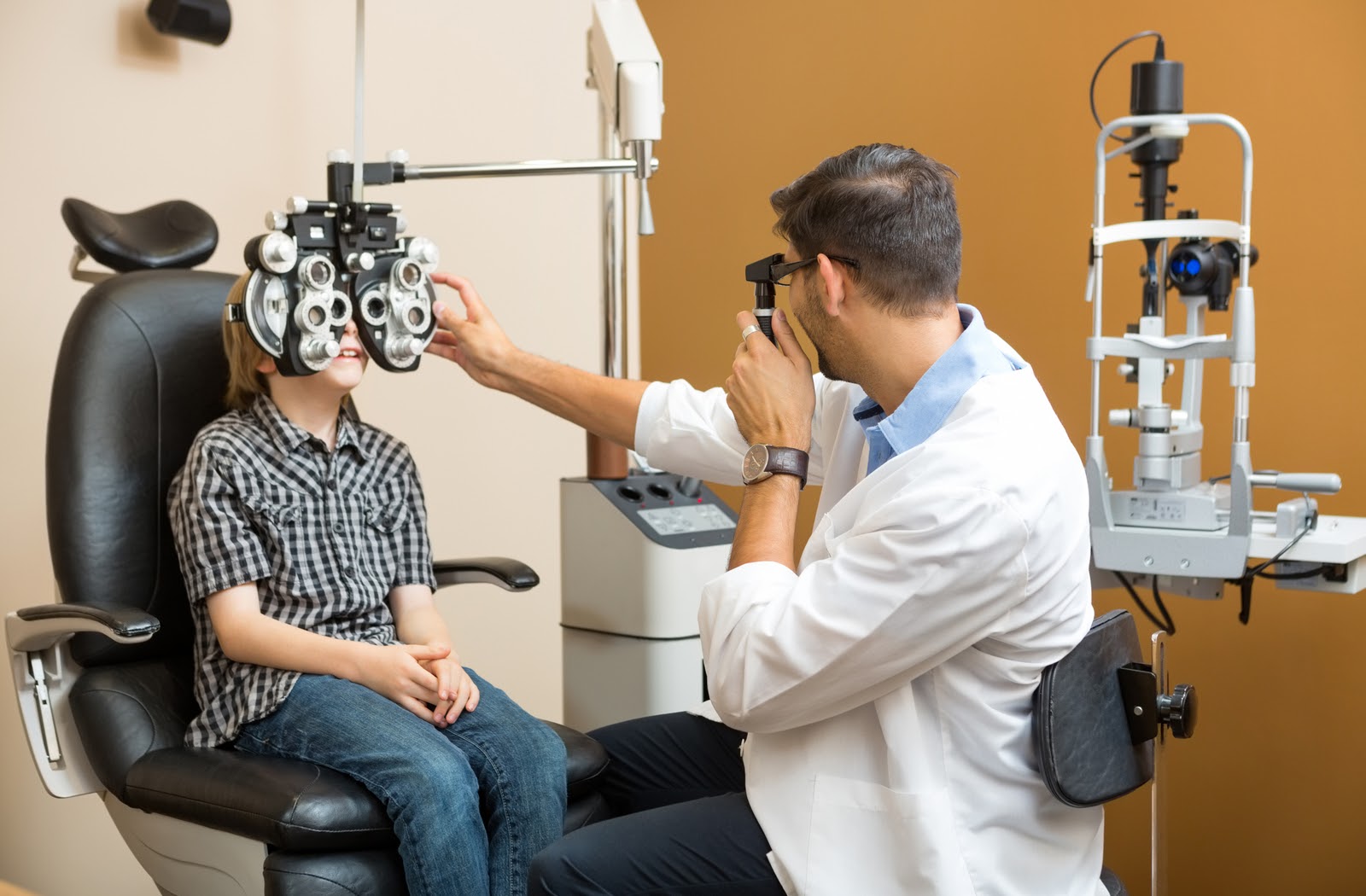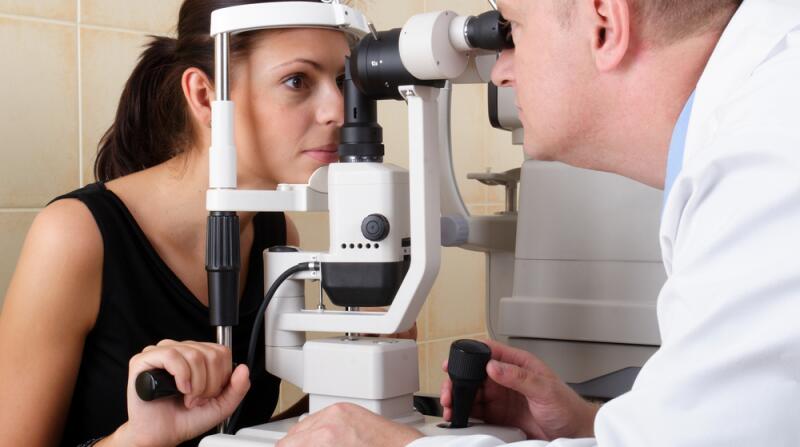Trusted Eye Doctor Montgomery for Vision Treatment
Trusted Eye Doctor Montgomery for Vision Treatment
Blog Article
The Significance of Regular Eye Exams: Insights From a Skilled Optometrist
Routine eye examinations work as a vital element of health care that prolongs beyond mere vision adjustment. A skilled optometrist can offer insights right into how these analyses not just find typical eye conditions but also disclose underlying wellness problems that may or else go undetected. The silent progression of conditions such as glaucoma and macular deterioration highlights the necessity of very early discovery. Understanding the regularity and relevance of these evaluations can ultimately affect one's lasting health and wellness trajectory, raising the question of just how typically individuals need to prioritize their eye health and wellness in the context of overall health.
Benefits of Routine Eye Exams
Although many people may neglect the relevance of regular eye exams, these evaluations play a critical duty in keeping general health and wellness. Normal eye examinations serve not just to assess vision however likewise to identify early indications of systemic wellness concerns, including diabetic issues and high blood pressure. By identifying these conditions at their creation, people can receive timely interventions, dramatically boosting long-term results.
Furthermore, eye tests can aid in keeping track of existing health and wellness problems, making certain that any changes in vision or eye health are immediately resolved (optometrist). The analyses enable personalized recommendations concerning eyeglasses, way of life modifications, and protective procedures versus prospective eye stress or damage
Beyond physical health and wellness, the benefits of routine eye examinations reach improving high quality of life. Enhanced vision helps with much better performance in daily activities, from reading to driving, thereby contributing to better freedom and safety and security. Inevitably, focusing on eye examinations promotes a proactive approach to wellness monitoring, equipping individuals to organize their well-being. Normal exams are a crucial part of a detailed healthcare strategy, ensuring that both vision and total health and wellness are protected throughout life.
Common Eye Issues Detected
Regular eye tests are crucial in finding a variety of usual eye problems that can considerably influence vision and general wellness. Among one of the most common conditions determined during these assessments are refractive mistakes, consisting of myopia (nearsightedness), hyperopia (farsightedness), and astigmatism. These problems frequently show up as blurred vision and can be conveniently fixed with prescription glasses or get in touch with lenses.
Additionally, cataracts, which trigger clouding of the lens, are frequently diagnosed in older grownups. This problem can result in lessened vision and needs surgical intervention for resolution. An additional typical concern is glaucoma, a group of eye diseases that damage the optic nerve, often connected to increased intraocular pressure. Early discovery is important as it can prevent permanent vision loss.
Age-related macular degeneration (AMD) is one more substantial problem that influences central vision, particularly in individuals over 50. Finally, diabetic retinopathy, a complication of diabetes, can bring about severe vision disability otherwise checked frequently. Through thorough eye tests, these problems can be identified early, permitting timely management and treatment to preserve vision and enhance quality of life.
Importance of Early Discovery
Early detection of eye problems plays a crucial function in preserving vision and preventing substantial wellness problems. Many eye conditions, such as glaucoma, diabetic person retinopathy, and age-related macular degeneration, can proceed quietly without visible signs and symptoms in their onset. By the time signs and symptoms materialize, irreversible damages may have taken place, causing long-term vision loss.
Normal eye examinations facilitate very early diagnosis, enabling timely treatment and therapy. As an example, dealing with elevated intraocular stress can avoid the start of glaucoma, while handling blood sugar level levels can dramatically minimize the risk of diabetic retinopathy. In addition, conditions like cataracts can be properly managed with medical treatment when determined early.

Just How Often Should You Go To?
Establishing the regularity of eye tests is essential for maintaining optimal eye health and vision. The general recommendation for adults is to have a comprehensive eye exam every one to 2 years, depending on specific danger variables and age.
People with certain danger elements, such as a family history of eye disease, diabetes, or existing vision problems, might call for even more constant analyses. Children ought to have their very first eye test at 6 months old, followed by additional exams at age three and before going into school. Normal examinations during childhood years are important as vision can change swiftly during developmental years.
Eventually, the frequency of brows through must be tailored per individual's conditions, including way of living, work-related hazards, and any kind of pre-existing eye conditions. Consulting with an eye treatment professional can provide customized referrals, guaranteeing that your eye wellness is consistently kept track of and preserved.
Tips for Your Eye Test
Getting look these up ready for your eye test can enhance the performance of the go to and make sure a comprehensive analysis of your eye health. To read optimize your time with the eye medical professional, it is essential to collect pertinent information prior to your consultation. Start by compiling a listing of any kind of medications you are currently taking, consisting of non-prescription drugs and supplements, as these can affect eye health and wellness.
In addition, document any signs you have actually experienced, such as obscured vision, pain, or headaches. This info will certainly help your optometrist in diagnosing potential problems. If you use glasses or call lenses, bring them along, also if you don't wear them routinely. This will assist the physician analyze any kind of adjustments in your vision.
It is also advantageous to have a family history of eye conditions handy, as hereditary variables can add to your eye wellness. Ultimately, take into consideration arranging your test temporarily when you are much less rushed, allowing you to ask questions and review your worries completely. By preparing effectively, you make sure that your eye examination is productive and that your ophthalmologist has all the necessary information to give the most effective treatment possible.

Final Thought
Normal eye examinations play a critical function in keeping both vision and general wellness. Ultimately, prioritizing thorough eye examinations adds considerably to the conservation of vision and the improvement of high quality of life, underscoring the necessity of regular eye treatment in preventative healthcare methods.
Normal eye examinations are crucial in spotting a range of usual eye conditions that can considerably affect vision and total health.Identifying the regularity of eye tests is essential for preserving ideal eye health and wellness and vision.Preparing next for your eye test can enhance the efficiency of the browse through and ensure a complete analysis of your eye health (optometrist). By preparing properly, you guarantee that your eye examination is efficient and that your eye physician has all the essential details to give the ideal treatment feasible
Eventually, prioritizing thorough eye assessments contributes significantly to the preservation of vision and the enhancement of high quality of life, highlighting the necessity of regular eye treatment in precautionary medical care approaches.
Report this page